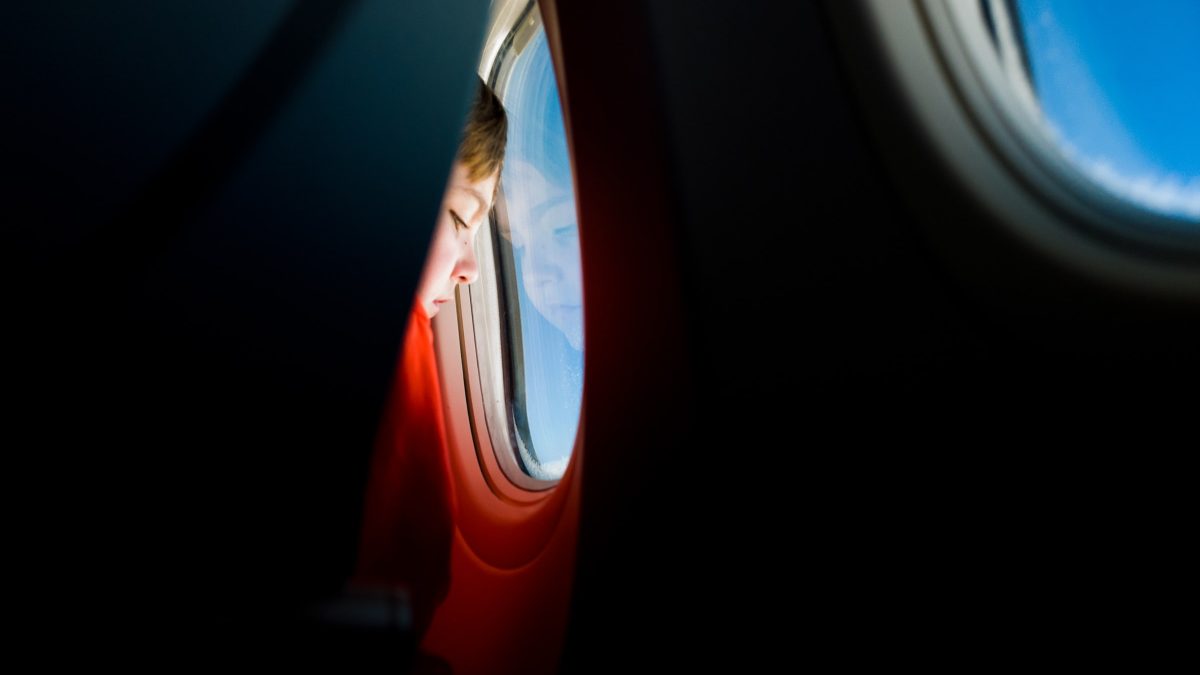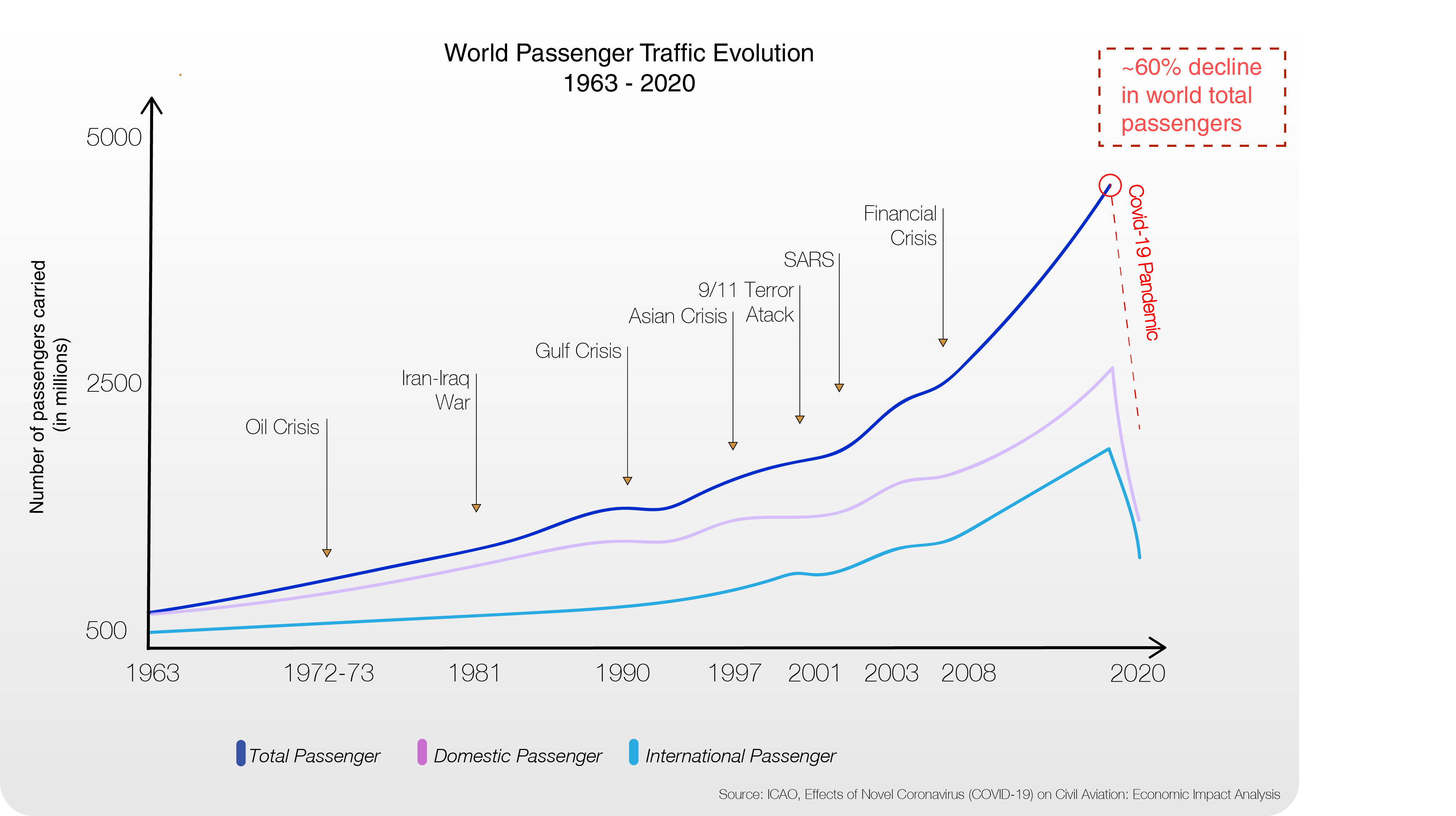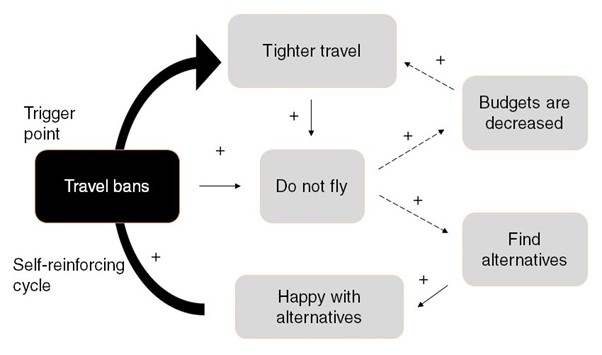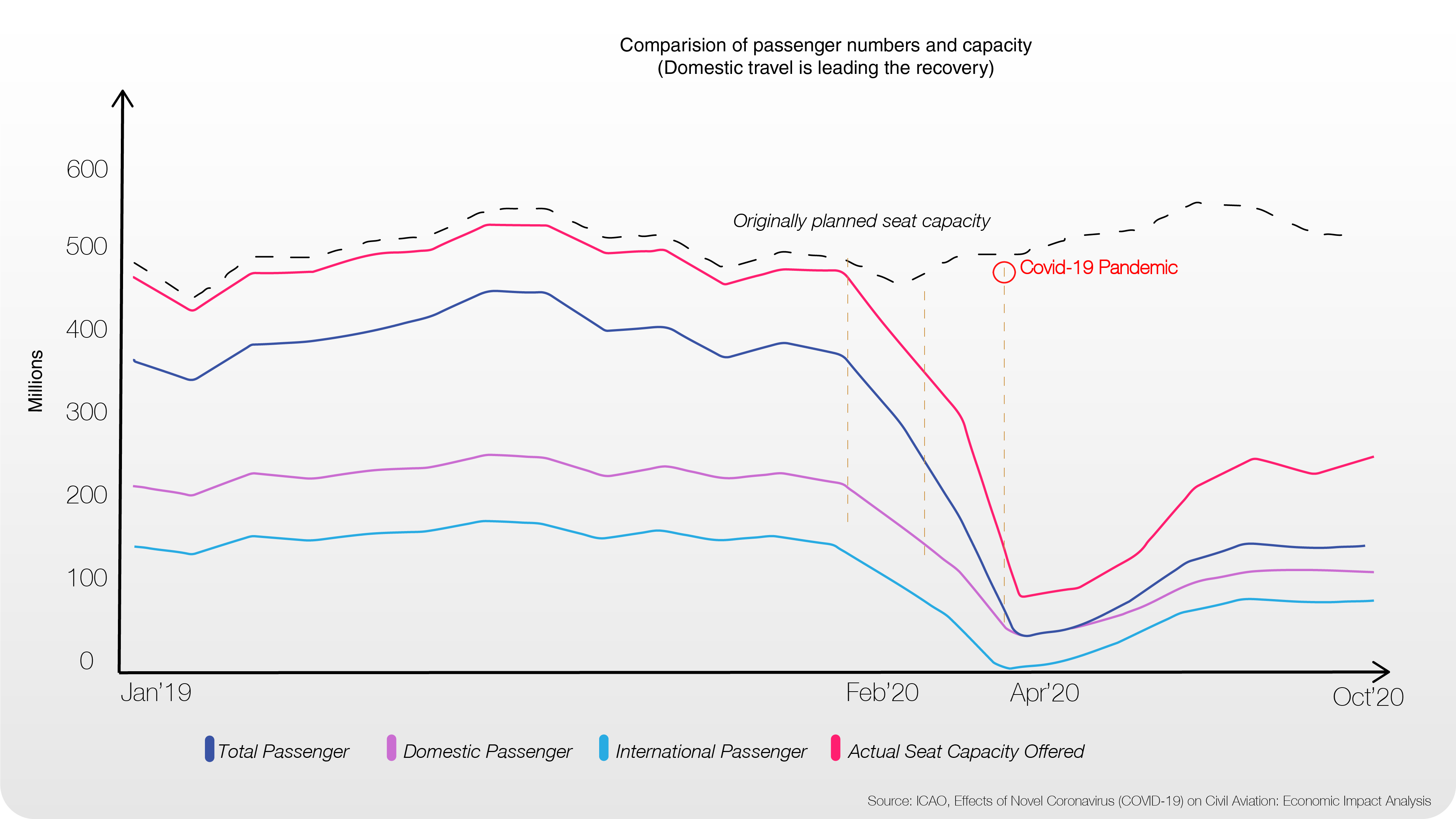
“In less than 65 days, we have returned to the flight plan levels of 65 years ago. This is extremely bitter, devastating, and painful”. This was the observation made by Lufthansa CEO Carsten Spohr when he addressed the German company's shareholders on 5th May.
Last spring, Lufthansa's passenger number was only 1% compared to the previous year. This figure illustrates the scale of the crisis, as well as the gloomy global outlook for the sector. The International Air Transport Association (IATA) predicts a 55% decrease in the number of passengers worldwide compared to 2019, including months when traffic was still at a normal level.
Despite this unprecedented crisis in its intensity, a future without air transport remains unthinkable. For the majority of my students, air travel is the only way to join our campus and to go back to their families; for many, it is a way to discover new cultures, make new friends, and drive global understanding. It also has a strong role to play in support of the global economy and fuel the growth of prosperity. In comparison to any other global crisis, the one we are living in today has a stark contrast in its intensity in the history of air travel evolution. So, can the airline industry be saved? And if yes, how? And, what will it look like after the crisis?
Last spring, Lufthansa's passenger number was only 1% compared to the previous year. This figure illustrates the scale of the crisis, as well as the gloomy global outlook for the sector. The International Air Transport Association (IATA) predicts a 55% decrease in the number of passengers worldwide compared to 2019, including months when traffic was still at a normal level.
Despite this unprecedented crisis in its intensity, a future without air transport remains unthinkable. For the majority of my students, air travel is the only way to join our campus and to go back to their families; for many, it is a way to discover new cultures, make new friends, and drive global understanding. It also has a strong role to play in support of the global economy and fuel the growth of prosperity. In comparison to any other global crisis, the one we are living in today has a stark contrast in its intensity in the history of air travel evolution. So, can the airline industry be saved? And if yes, how? And, what will it look like after the crisis?

Business travel, back to normal?
Perceived by many as an essential driver of economic growth, business travel has for many years enjoyed the magical aura to transform physical meetings around the world into a business and economic opportunity. It has also been an important growth engine for the airline industry. However, business travel may never return to its pre-crisis level. Travel bans, imposed by states and businesses, can serve as a starting point for a self-reinforcing cycle that strategists seek to identify exponential changes.As the feedback chart on the other side suggests, travel bans involve fewer (or no) flights, resulting in lower budgets, tougher travel regulations that many may prevail over even after travel bans have been lifted. If such a cycle is stopped within 4 weeks, new behaviours will not have time to adapt and the system will generally return to its original state. However, the longer the crisis, the more likely it is that systemic changes will become permanent. The lack of business trips and face-to-face meetings has now led to the adoption of mass alternatives, such as video conferencing, virtual collaboration, online whiteboards, etc. If these alternatives can show that they can increase productivity, business travel would become an exception for meetings, as was the case 65 years ago.
From globalization to regionalization?
Since 2005, globalization has shown signs of slowing down. Business internationalization strategies are increasingly focused on local responsiveness and less and less on control and dependence on international headquarters. Global trade tensions, such as the U.S.-China conflict, could help slow intercontinental travel. The Covid-19 crisis could accelerate this trend and promote regional trade and supply.A recent study showed that an important response to the Covid-19 crisis was the relocation of supply chains and in particular the emphasis on the use of regional ecosystems. This response could become permanent, reinforced by the low level of international travel. Recent figures from the International Civil Aviation Organization (ICAO) show that while inter-regional travel has picked up from an average of 250 million passengers before the crisis to 100 million today, the number of international passengers is 20 million, well below the pre-crisis 160 million.


The end of the hub & spoke model?
It is interesting to note that the impact of the Covid-19 pandemic has been felt differently by low-cost airlines such as Ryan Air or EasyJet, and traditional network airlines (CATR), such as Air France, Lufthansa or Singapore Airlines. CATRs rely on central platforms where short-haul flights are connected to long-haul flights that, with their larger aircraft capacity, are more economically attractive. This hub-and-spoke model also creates powerful network effects, allowing major airlines to achieve economies of scale and create powerful barriers to entry for newcomers.These benefits for CATRs, however, come at the cost of passenger acceptance. Indeed, these routes involve connections. Normally, this can be called into question for environmental reasons and may be perceived as an inconvenience by passengers. But in times of health crisis, hubs are key risk areas in passenger travel, as it remains difficult to guarantee standards of social distance at airports. The interdependence between short-haul and long-haul flights is also a huge obstacle to recovery. For CATRs, the absence of long-haul flights means that short-haul flights must be reduced. The absence of short-haul flights will make it impossible to fill large long-haul flights. Low-cost, full-service airlines operating a point-to-point model can be much more responsive in opening and closing routes to meet fluctuating demand. Most CARTs have a strategy to hold on and eventually restart their hub-and-spoke model. But to avoid a breakdown of their long-haul refuelling system, they must keep open roads that are not profitable. This makes them, in most cases, dependent on state aid. The question is how long this strategy can be maintained and how long taxpayers will be willing to cover the losses.
It's no wonder that some CATRs are rediscovering holiday travel with their point-to-point offerings. "Never before have we included so many new holiday destinations in our program. This is our response to the wishes of our customers," explains Harry Hohmeister, a member of the board of directors of Deutsche Lufthansa AG.
And what about flight-shaming?
The growing awareness of the environmental impact has led to a flygskam (flight shaming) movement in Sweden aimed at avoiding air travel that has now gone far beyond the kingdom's borders.However, there are also signs that containment-related measures, in response to Covid-19, have increased citizens' desire to adopt a calmer lifestyle. This raises questions about the cosmopolitan way of life that the middle classes have so easily adopted. This point remains at the heart of the concerns of aviation players, even if its real influence on consumer behaviour remains difficult to measure.
In summary, our work shows that these four drivers of change herald a more radical transition in air transportation than in other sectors. While expectations remain cautious as uncertainties remain significant. It seems that the post-Covid scenarios will emerge around these four elements. The study of these different possible scenarios will be the subject of the continuation of our research project.
This is the English version of the article originally published in French by The Conversation. You can read it here : https://theconversation.com/le-transport-aerien-ne-sera-plus-jamais-le-meme-151150



